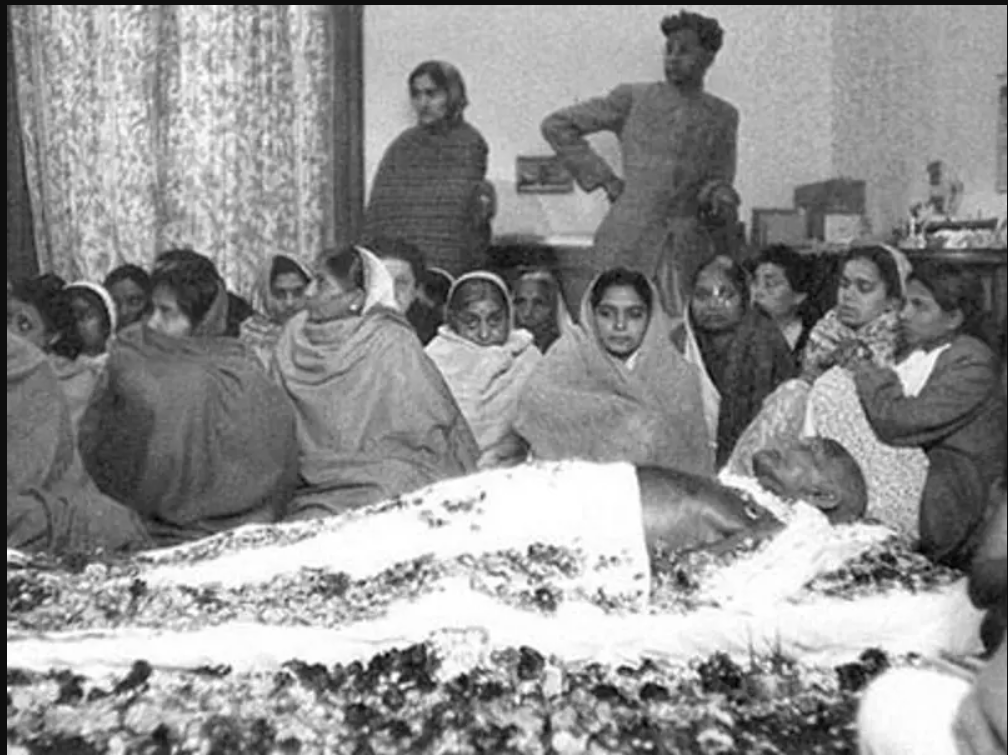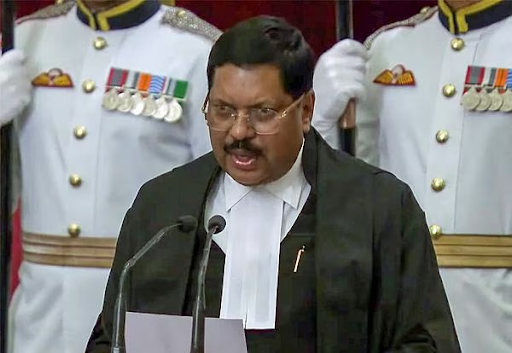Description
.jpg)
Disclaimer: Copyright infringement not intended.
Context:
- The Supreme Court of India, in a recent case (Seema Girija Lal and anr vs Union of India and ors), expressed deep concern over the lack of progress in implementing the provisions of the RPWD Act.
Background
- The Right of Persons with Disabilities Act, 2016 (RPWD Act) was enacted to safeguard the rights and interests of persons with disabilities in India.
- However, despite the passage of over five years since its enactment, the implementation of the Act remains dismal across the country.
Supreme Court's Observations and Directives:
Dismal Implementation Across India:
- The Supreme Court lamented the poor implementation of the RPWD Act, noting that many States have not even framed rules under the Act, which was required to be done within six months of its enactment.
- This indicates a lack of commitment to implementing the provisions of the Act.
Non-Framing of Rules:
- The Court highlighted that the failure to frame rules under the Act is a significant issue, as rules are essential for providing detailed guidelines on how the Act's provisions are to be implemented.
Court's Directives:
- The Supreme Court directed the Department of Rights of Persons with Disabilities (RPWD) to take up the matter with all relevant authorities and report on the compliance status before the Court.
- The Court emphasized the need for urgent action to address the deficiencies in the implementation of the Act.
Previous Court Orders:
- The Court noted that it had issued several orders in the past calling for the proper implementation of the Act. However, the lack of progress in this regard is a matter of serious concern.
Status of Implementation:
- The Court observed that several States and Union Territories are yet to fulfill their obligations under the RPWD Act.
- This includes the non-appointment of Commissioners, non-creation of funds as required under the Act, and the lack of special courts and public prosecutors for cases under the Act in certain regions.
Critical Lapses Identified:
- The Court highlighted specific lapses in implementation, such as the non-appointment of Commissioners in several States and Union Territories, the failure to create funds as mandated by the Act, and the absence of special courts and public prosecutors in certain regions.
Court's Action:
- The Supreme Court has called for immediate steps to address these deficiencies.
- The matter is scheduled to be heard again in the second week of July, indicating the Court's seriousness in ensuring the effective implementation of the RPWD Act.
Conclusion
- In conclusion, the Supreme Court's observations underscore the urgent need for all stakeholders to take proactive measures to ensure the full and effective implementation of the RPWD Act, thereby protecting the rights and interests of persons with disabilities across India.

Disability
Definition
- According to WHO (World Health Organization), Disability results from the interaction between individuals with a health condition such as cerebral palsy, Down syndrome and depression as well as personal and environmental factors including negative attitudes, inaccessible transportation and public buildings, and limited social support.
Right to Persons with Disability Act
- The Right to Persons with Disability Act came into force on 19th April 2017 to give an effect to the United Nations Conventions on Rights with Persons with Disability.
- The disabled, specially-abled, handicapped or Divyangjan are the most vulnerable section of this capitalist society due to many factors such as poor education, lack of family support, lack of representation, low social security and health benefits etc.
Analysis of the Right to Persons with Disabilities Act, 2016
- Analysis: Prior to the Persons with Disabilities Act 2016 the laws governing the disabled were scattered in the Constitution of India.
Definition
- The Right to Persons with Disabilities Act (RPWD Act 2016) has categorized Person with disability into three:
-
- Person with benchmark disability
- Person with disability
- People with disabilities having high support needs.
- In the RPWD Act 2016, there has been an increase in the type of disabled, which has been increased from 7 types to 21 types and the Central Government has the power to add more maladies.
Types of disability are as per RPWD Act 2016-
- Blindness
- Low-vision
- Leprosy Cured persons
- Hearing Impairment (deaf and hard of hearing)
- Locomotor Disability
- Dwarfism
- Intellectual Disability
- Mental Illness
- Autism Spectrum Disorder
- Cerebral Palsy
- Muscular Dystrophy Chronic
- Neurological conditions
- Specific Learning Disabilities
- Multiple Sclerosis
- Speech and Language disability
- Thalassemia
- Haemophilia
- Sickle Cell disease
- Multiple Disabilities including deafblindness
- Acid Attack victim
- Parkinson’s disease.
Rights and entitlement
- This Act provides that “the appropriate Government shall make sure that the person with a disability (PWD) enjoys the proper to equality, life with dignity, and respect for his or her own integrity equally with others.”
Equality and non-discrimination
- The governmental authorities are to require steps to utilize the capacity of the PWD by providing an appropriate environment.
- It’s additionally stipulated within section 3that no PWD shall be discriminated on the idea of disability unless it’s shown that the impugned act or omission could also be a proportionate means of achieving a legitimate aim and no-one shall be deprived of his personal liberty only on the idea of disability.
- Living within the community for PWD is to be ensured and steps are to be taken by the govt. to form sure reasonable accommodation for them.
Women and children with disabilities
- Special measures are to be taken to make sure women and kids with disabilities enjoy rights equally with others.
Protection from cruelty and inhuman treatment
- Measures are to be taken to guard the PWD against being subjected to cruelty, inhuman, and degrading treatments and from all sorts of abuse, violence, and exploitation.
- For conducting any research, free and consent from the PWD also as previous permission from a Committee for Research on Disability to be constituted within the prescribed manner.
Protection from abuse, violence and exploitation.
- Under section 7(2)of the Act, an individual or registered organization, who or which has reason to believe that an act of abuse, violence, or exploitation has been committed or it is being or shall commit in future against any person with Disability, may give information to the local Executive Magistrate who shall take immediate steps to stop or prevent its occurrence and pass appropriate order to protect the PWD.
- Police officers, who receive a complaint or otherwise come to know of violence, abuse, or exploitation, shall inform the aggrieved PWD of his right to approach the chief Magistrate.
- The policeman must also inform about particulars of the nearest organization such as an NGO working for the rehabilitation and development of the Person with Disability, right to free legal aid, and right to file a complaint under the provisions of this Act or the other law handling such offence.
Reproductive Rights
- The onus is put on the Government to protect the Reproduction Rights of Persons with Disability also making them aware of family planning.
Education
- The education institutions which are funded by the Government or Local authorities should admit them without discrimination, make educational institutes more accessible, by providing infrastructure, transportation, different modes of communication, to train teachers to deal with special kids, to provide books free of cost to people with benchmark disability up to the age of 18 years, to provide scholarships and shall ensure promotion and participation of PWD’s equally.
- Sec 31of the Act declares that a child with benchmark disability aged between 6 – 18 shall have the Rights to free education in a special school, neighbourhood school or any school of his choice.
Reservation and Employment
- Reservation not less than 3% should be provided in higher educational institutes, government jobs, Persons with Benchmark Disability have provided benefits in the allocation of land, poverty alleviation schemes etc. Provision for grievance redressal officer is also being provided. The government must notify posts only reserved for Persons with Benchmark Disability.
- Very Interestingly this time the private sector has also been targeted and a set of rules have been set up such as:
- Frame an Equal Opportunity Policy.
- Appoint a Liaison Office.
- Identify Posts / Vacancies for Disabled people – Not Mandatory
(When a private institute receives funding from Respective Government they need to ensure their 5% of employees are PWD’s.
- Prohibit Discrimination.
- Provide Additional benefits / Facilities
- Revamp existing hiring policies
- Confirm with accessibility norms
- Maintenance of Record.
Authority
- Monitoring implementation of the Act will be looked The Chief Commissioner for Persons with Disabilities and the State Commissioners also will act as regulatory body and Grievance Redressal agencies for the speedy remedies.
Funds
- A fund will be created to provide financial support to people with disabilities both at the state and national level
Courts:
- For handling of cases concerning with violation of Rights of People with Disabilities.
- And for ensuring speedy trials, special courts are to be constituted in each district.
Penalty
- Breach of the provisions of the Act are penalised by a fine of an amount up to Rs.10,000/- (Ten thousand only) and Rs .50,000/- (fifty thousand only) with could be extended up to 500000/- (5 lakhs only) for further Breach.
- Cruelty on Person with Disability (PWD) is made punishable with imprisonment of 6 months extendable to five years and with a fine.
- Spuriously availing the advantages which are created for Person with Disability (PWD) has also been made punishable.
Case Law
Vikash Kumar Vs Union Public Service Commission and Ors.
- The case of Vikash Kumar Vs Union Public Service Commission and Ors, recognizes and amplifies the proper to reasonable accommodation and roots it within the constitution.
- Its reflective of the metamorphosis of the disability rights jurisprudence of India, which is why it’s imperative to debate its implications and therefore the gaps that are yet to be filled.
|
PRACTICE QUESTION
Q. Critically evaluate the challenges in the implementation of the Right of Persons with Disabilities Act, 2016 (RPWD Act) in India. Discuss the key areas where implementation has been lacking and suggest measures to improve the effectiveness of the Act.
|




.jpg)
.jpg)








